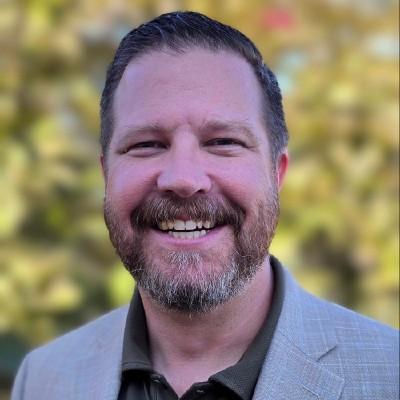Profile: Michael Ritchey
Michael Ritchey, LCSW, is an online Doctor of Social Work (DSW) student living in Southern California. Ritchey holds both a Master of Social Work (MSW) and Master of Arts in Criminal Justice and Corrections from Arizona State University.
Beyond being a doctoral candidate, Ritchey is a Peer Mentor through Tulane School of Social Work's Peer Mentoring Program, which aims to decrease feelings of isolation, increase guidance on adjusting to doctoral studies, and provide mentoring experience and training to recent or soon-to-be DSW graduates. We've asked him a few questions about the DSW program and his experience as a Peer Mentor.
I find myself looking at all situations differently than I did prior to enrolling in the program, utilizing my previous clinical experience and my new education to influence my practice and education.
Michael Ritchey, LCSW
Why did you decide to get your DSW? Why Tulane?
I got my MSW when I was already older than the average MSW student. I had never thought about I would be a social worker let alone even applying for a doctorate degree. Because of my age, however, I figured I should consider getting as advanced of a degree as I could to give me an advantage over others within the field and to attempt to increase my salary as much as possible.
I chose Tulane for many reasons. I have always had a love for the city of New Orleans, its people, and its culture. I hope to move from Southern California to New Orleans once an appropriate job opportunity presents itself. I think my love for the city started with the romanticized version of the city at Disneyland. My wife is also originally from the greater New Orleans area, and she suggested Tulane's DSW program after one of her professors at the University of Southern California's MSW program mentioned that they were enrolled in the DSW program. (I am actually working with said professor on my secondary Advanced Practice Project.) Finally, after considering USC and Tulane, I felt Tulane's program fit more of what I wanted to get from a program; I didn't want to come out as an administrator but instead as a better critical thinker, researcher, and field-based social worker... that could ultimately become an administrator at some point.
Did you receive mentorship in the early days of your DSW program? How was that?
I was fortunate with the mentor I was assigned my first semester. She worked for the VA in Florida as I work for the VA in California. She provided much guidance and, using our internal VA messaging system, would provide informal check-ins with me throughout my first semester.
Why did you decide to become a mentor?
I remember how intimidated I was my first semester and how the appropriate guidance improved and impacted that semester as well as my success throughout the program. I wanted to provide new DSW students with support not just throughout their first semester, but throughout their DSW. This is currently my third semester being a mentor. Every semester, I have at least one mentee that remains in contact with me asking for continued support and guidance. One who lives close to me actually asks to borrow my textbooks if I have them available. I am always happy to share!
Share a little bit about your APP and the work you do, both academically and professionally. In what ways has the DSW program helped you grow?
My APP is focused on identifying a connection between Adverse Childhood Experience and Veteran Suicide rates. I am in the final stages, hopefully, of data collection and hope to begin the analysis portion soon.
Currently, I am the Inpatient Psychiatric Social Work Supervisor at the Long Beach VA in Long Beach, CA. At the VA, I provide Practicum Instruction and Supervision to MSW students at many universities throughout the country. I also provide Clinical Supervision to MSWs who are working towards their licensure.
The DSW program has improved my critical thinking skills that I then pass along to all of my supervisees (administrative, clinical and educational). I find myself looking at all situations differently than I did prior to enrolling in the program, utilizing my previous clinical experience and my new education to influence my practice and education. I find myself being more evidence-based than I was before, asking everyone who presents things to me to "show me the evidence." If it's not shown, I find myself doing research trying to find the evidence.
What’s your best tip for incoming DSW students?
Stay calm and enjoy and trust the process. This program is intense, but the intensity will become overwhelming only if you allow it to. Find members of your cohort that you can talk with and create a group chat with many of them. Send jokes, memes, and encouragement among yourselves and, as one of my cohort-mates says, "drag each other across that stage if you have to when it's all done." Failure is not an option, but straight A's are not a requirement.

